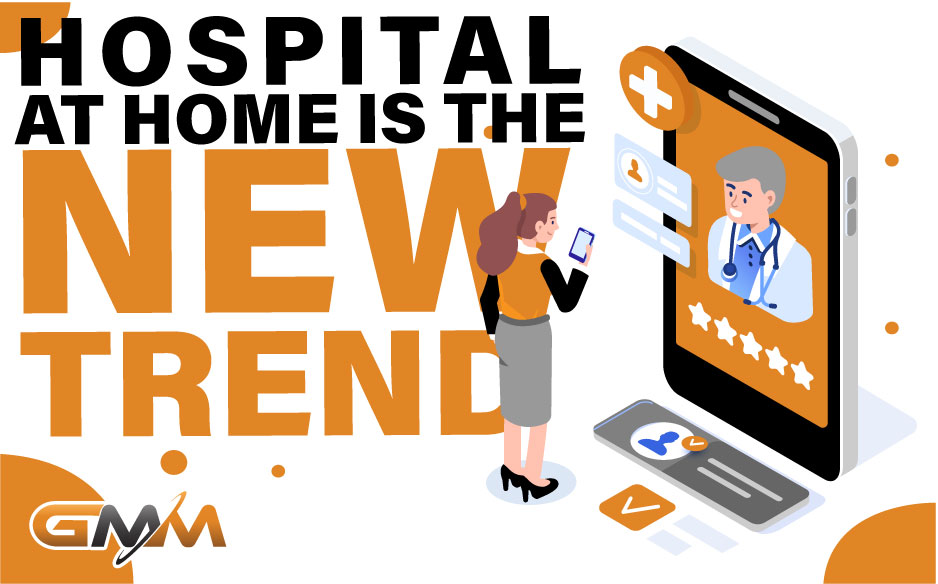There is a new care delivery model that reduces costs, improves outcomes, and enhances the patient experience when it comes to providing acute-level care. Rather than providing this acute-level care in a hospital setting, many hospitals are transitioning to providing this care in the comfort of the patient’s own home. This hospital at home trend has proven so effective, that even Medicare and Medicaid Services are providing hospitals with this expanded flexibility in caring for patients at home.
The hospital at home care delivery model is a great alternative for patients who need acute care and are stable enough to be safely monitored from home. Hospital at home care is a good fit for conditions that offer well-defined treatment plans, such as diabetes, cellulitis, chronic obstructive pulmonary disease (COPD), congestive heart failure, and pneumonia. Even though these patients are at home, they remain in constant contact with their health care providers through in-home visits, biometric monitoring via telehealth technologies, and video visits.
Hospitals that may be considering implementation of a hospital at home program have a variety of structures and services that they can choose from. The hospital at home care model was developed and researched by John Hopkins Medicine, and they have even provided a step-by-step approach to implementation for other hospitals to follow. Some hospitals choose to focus on a specific patient population, such as post-surgical monitoring, oncology care, or diabetic care. Other hospitals run broader programs by evaluating patients from the emergency department or inpatients and admitting those patients to their homes if they are a good fit for in-home care. Still other hospitals accept referrals from specialty clinics or local paramedics. Hospital at home has proven to be a greatly beneficial care model in rural communities.
Hospital Services Provided in the Home
- Identification and Assessment of Patient’s Home
- Ensuring suitability for Hospital at Home (e.g., running water, air conditioning, heat)
- Identification and referral for social service needs (e.g., access to food, unsafe conditions)
- Diagnostic Studies
- Electrocardiograms
- Echocardiograms
- X-Rays
- Treatments
- Oxygen therapy
- Intravenous fluids
- Intravenous antibiotics and medications
- Respiratory therapy
- Services
- Pharmaceutical services
- Skilled nursing services
The reductions in costs alone are a great reason for hospitals to implement a hospital at home program. Another motivation is the compensation they can receive from Medicare and Medicaid Services. By completing a simple waiver and adhering to screening and safety protocols, such as patient evaluations daily by a nurse, and two in-person daily visits from a nurse or mobile-integrated health paramedics, hospitals can qualify for compensation.
Hospital at home programs are quickly becoming an integral part of patient care and are a smart move by hospitals to reduce costs, improve outcomes and enhance the patient experience. Since those three components are typically the main goals of any hospital, it makes sense that hospitals move now to implement a hospital at home program.
Genesis Medical Management keeps their clients up to date on the latest trends in healthcare while providing innovative, personalized healthcare solutions.
Let's Grow Together!
We look forward to learning about your healthcare business to discover how GMM can create a profitable solution!

Contact Us

Navigation
Contact Us

